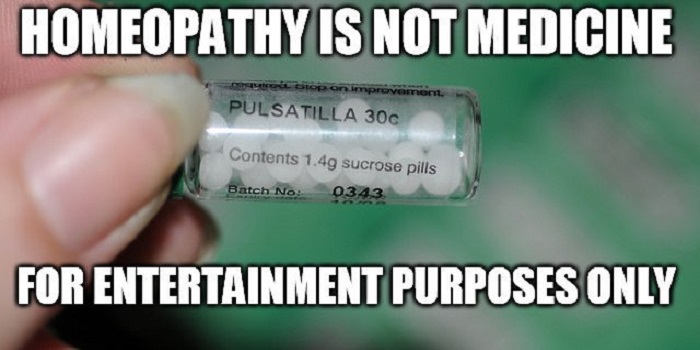
The Federal Trade Commission (FTC) has issued a policy that will ensure that all over-the-counter (OTC) homeopathic drugs will henceforth come with a label that states that there is “no scientific evidence that the product works.” 
In the United States, homeopathic remedies have remained popular among those seeking alternative medical treatments. In 2007, it was estimated that Americans spent more than $3bn on homeopathic drugs.
Created in 1796 by Samuel Hahnemann, homeopathy is a treatment based on the use of highly diluted substances and is used to treat a wide range of health conditions including mental health conditions, asthma and arthritis.
“Practitioners believe that the more a substance is diluted in this way, the greater its power to treat symptoms. Many homeopathic remedies consist of substances that have been diluted many times in water until there is none or almost none of the original substance left,” The British National Health Service (NHS) explains.
In the last decade, however, a number of studies have proven homeopathy to be ineffective when treating medical conditions. Despite this mounting evidence, many people still seek out this controversial system of alternative medicine.
In a 2016 systematic study, researchers found that homeopathy treatment was no more effective than placebo drugs. After reviewing the evidence of a total of 176 trials – focused on 68 different health conditions – the researchers concluded that there was no evidence to suggest homeopathy was an effective treatment for any of the illnesses.
“Homeopathy, which dates back to the late-eighteenth century, is based on the view that disease symptoms can be treated by minute doses of substances that produce similar symptoms when provided in larger doses to healthy people,” said the Federal Trade Commission.
In 1972, the FTC announced a regulation that would require all claims of product efficacy to be substantiated, however, until recently, the regulation had not been effectively enforced. According to reports, the policy announcement has been made following a workshop that looked at how these products are marketed to consumers.
In response to the workshop, the FTC has decided that all OTC homeopathic drugs must feature a label stating that “there is no scientific evidence that the product works and [that] the product’s claims are based only on theories of homeopathy from the 1700s that are not accepted by most modern medical experts.”
Medical professionals have long been concerned with the controversial treatment’s role in the health system, with many fearing that patients are not seeking appropriate care to treat serious and long-term medical conditions effectively.
It is hoped that by labeling the alternative treatment with the appropriate warning, the products will no longer be marketed to consumers using deceptive methods. In a recent press release, the FTC stated:
“An OTC homeopathic drug claim that is not substantiated by competent and reliable scientific evidence might not be deceptive if the advertisement or label where it appears effectively communicates that: 1) there is no scientific evidence that the product works; and 2) the product’s claims are based only on theories of homeopathy from the 1700s that are not accepted by most modern medical experts.”
Image: Flickr, Richard Craig (CC BY 2.0)
This article (Homeopathy Drugs to be Labeled with Warning to Say They Do Not Work) a is free and open source. You have permission to republish this article under a Creative Commons license with attribution to the author and AnonHQ.com.
Supporting Anonymous’ Independent & Investigative News is important to us. Please, follow us on Twitter: Follow @AnonymousNewsHQ




